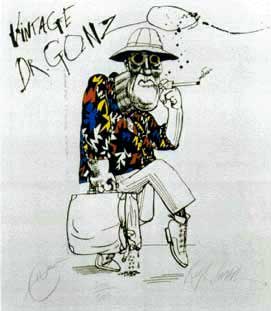Risky business
 Dr. David Brill’s business went belly up in March, which is good news for the state’s working counter-culture, but a bad indicator for everyone else. For those with substance-induced memory lapses, Brill’s now-bankrupt business, ironically named DrugRisk Solutions LLC., was once foisted by Governor George Pataki as both a catalyst for both business rejuvenation in Schuylerville and the biotech industry in New York.
Dr. David Brill’s business went belly up in March, which is good news for the state’s working counter-culture, but a bad indicator for everyone else. For those with substance-induced memory lapses, Brill’s now-bankrupt business, ironically named DrugRisk Solutions LLC., was once foisted by Governor George Pataki as both a catalyst for both business rejuvenation in Schuylerville and the biotech industry in New York.Less than three years and more than $1.2 million in debt later, Brill has filed federal chapter 11 proceedings as he reorganizes the company he once boasted would “save lives” and “reduce costs” for businesses by performing on-site hair follicle drug testing for them. Hair follicle testing can detect nearly every substance ingested by a subject on a “chronic” basis, according to the company, with little, if any margin of error.
For nearly five years, Brill was the darling child forged out of the matrimony between high-tech science and the legislative world, as he racked up more startup funding for his venture than many ordinary people make in a lifetime. Brill also seemed to cozy up quite nicely to Republicans in both the state Legislature and in Washington D.C., which is perhaps why he got so much capital from the get-go.
And shortly after the governor’s announcement in February 2004, things appeared to be going well with Brill’s company. DrugRisk received approval from the Food and Drug Administration to market the privately to police agencies, pulled in a high-tone scientist from Vegas and made a second run at a $100,000 business plan competition during the “Summit in Tech Valley” last year.
Then suddenly, Brill’s once-ambitious business plan was flushed down the toilet of bankruptcy, taking with it more than $3.3 million worth of public and private investment, the break down of which is a bit sketchier. In 2004, U.S. Congressman John Sweeney managed to get Brill $300,000 of federal funding, while Pataki penned him a check for $500,000 worth of taxpayer money. New York’s Empire Zones also doled out more than $100,000 worth of tax credits for investors into Brill’s failed business.
Perhaps in the world of business, a cool million isn’t a lot of money. But from a taxpayer’s prospective, anything with six figures seems like an ample amount to be chucked into a venture whose chief officer once told a federal Department of Health and Human Services panel would let business owners “be a human being” with employees.
Maybe that’s why the company failed. Big business executives –conceivably fearing the results of their own tests –are now subscribing to a more humane belief system that some recreational drug use is acceptable in workforce, enough so that they’re not chomping at the bit over the idea of transparent spot testing. Or could it be that a whole slew of wealthy vultures used Brill’s idea to log tax exemptions and fly beneath the radar of the IRS.
 As for Schuylerville, one can only hope that Brill’s business wasn’t the cornerstone on which revitalization was planned. And for Saratoga County, which has long touted the benefits of establishing the Luther Forest Technology Park, hopefully DrugRisk isn’t the proverbial parakeet that was flown into the mine of the region’s high-tech industry.
As for Schuylerville, one can only hope that Brill’s business wasn’t the cornerstone on which revitalization was planned. And for Saratoga County, which has long touted the benefits of establishing the Luther Forest Technology Park, hopefully DrugRisk isn’t the proverbial parakeet that was flown into the mine of the region’s high-tech industry.


0 Comments:
Post a Comment
<< Home